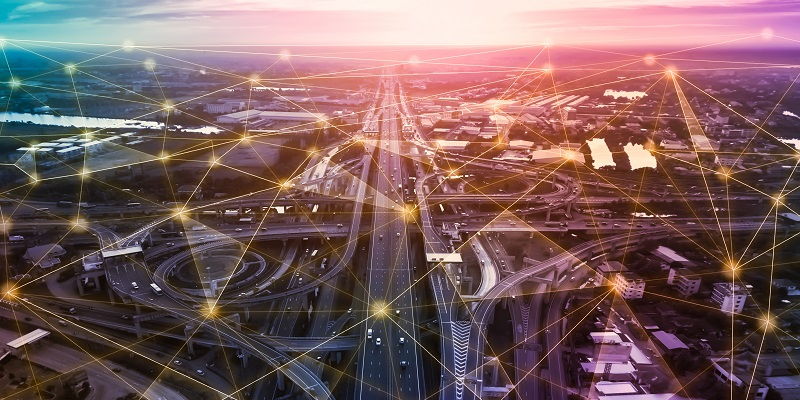The concept of smart cities has gained significant momentum in recent years as urban areas seek innovative solutions to manage the challenges of growing populations and limited resources. Smart cities leverage advanced technologies such as the Internet of Things (IoT) and Artificial Intelligence (AI) to create efficient, sustainable, and connected urban environments. This article explores the role of data science in managing intelligent cities and highlights the importance of leveraging data-based insights for informed decision-making.
Data Science: The Backbone of Intelligent Cities
Data science plays a critical role in managing smart cities, providing a foundation for understanding complex urban systems. By harnessing the power of data, city authorities can gain valuable insights into various aspects of urban living, including traffic congestion, waste management, and improvements in quality of life. From analyzing historical trends to predicting future scenarios, data science empowers city planners to make informed decisions that have a positive impact on residents.
Unleashing the Potential: Data Analytics in Smart Cities
In the realm of smart cities, data analytics offers a quick and dependable way to analyze vast quantities of raw data in real-time. This capability enables city officials to gain an intricate understanding of the dynamic nature of urban environments. By monitoring the pulse of the city through data analytics, urban planners can identify trends, patterns, and anomalies that allow for proactive management and timely interventions.
Clearing the Air: Big Data and Pollution Control
The utilization of big data in smart cities has a profound impact on environmental sustainability, specifically in minimizing pollution and improving air quality. By integrating various data sources, including real-time air quality sensors, weather data, and traffic patterns, cities can develop predictive models that identify pollution hotspots and take preventive measures. Real-time monitoring allows for the prompt detection of air quality deterioration, leading to immediate action to mitigate pollution and protect public health.
Climate Change Resilience: A Smart City Imperative
One of the primary objectives of developing intelligent cities is to find innovative solutions to the challenges posed by climate change. Smart cities embrace sustainable practices and employ technologies that promote resource conservation, reduce greenhouse emissions, and enhance climate resilience. By integrating climate data, urban planners can make informed decisions to implement renewable energy solutions, improve water management practices, and develop green infrastructure to combat the adverse effects of climate change.
Energy Efficiency: Empowering Smart Urban Living
Smart city technologies are designed to save energy in a multitude of ways. From smart grid systems that optimize energy distribution to sensor-driven lighting solutions that reduce unnecessary energy consumption, cities are adopting innovative approaches to sustainable energy management. By leveraging real-time data and analytics, smart cities can identify energy inefficiencies, track energy consumption patterns, and implement targeted interventions to reduce waste and promote energy conservation.
Breathing Easier: Air Quality Management in Smart Cities
Smart urban planning authorities recognize the importance of understanding and improving air quality. By utilizing advanced technological solutions such as IoT sensors and satellite data, cities can measure air quality in real-time, identify pollution sources, and devise effective mitigation strategies. Data-driven insights empower policymakers to implement targeted measures, such as restricting emissions from specific industries or adjusting traffic flow patterns, to mitigate the detrimental effects of air pollution on public health.
Streamlining Urban Mobility: Optimization through Data Analysis
Optimizing mobility in urban areas is a fundamental challenge faced by cities. Data analysis and intelligent systems enable authorities to develop efficient transportation networks, reduce traffic congestion, and enhance public transportation services. By analyzing data on commuting patterns, traffic flow, and transportation usage, city planners can identify pain points and design innovative solutions, facilitating smooth and sustainable mobility for residents and visitors alike.
Safeguarding Privacy: Enhancing Security in Smart Cities
As smart cities increasingly rely on data-driven technologies, maintaining data privacy and security becomes paramount. AI-driven cameras equipped with facial recognition capabilities can monitor real-time activities across streets and buildings, assisting security teams in ensuring public safety. Striking the right balance between security and privacy is crucial to foster trust among citizens while capitalizing on the immense benefits that smart city technologies offer.
The concept of smart cities holds immense potential to transform urban living by leveraging advanced technologies and data-driven insights. From managing traffic congestion and optimizing energy consumption to reducing pollution and improving the overall quality of life, intelligent cities are at the forefront of innovation. However, careful consideration must be given to privacy concerns and ensuring the equitable distribution of benefits across all segments of society. Continued research, collaboration, and innovation are essential to unlock the full potential of smart cities and create sustainable, inclusive urban environments for future generations.

